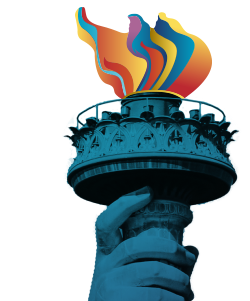Biochemist Jack Szostak has made important contributions to the field of genetics, creating the world’s first yeast artificial chromosome and discovering how chromosomes are protected by telomere, for which he was awarded the 2009 Nobel Prize in Physiology or Medicine. More recently, Szostak has devoted his research to the study of how life may have first emerged on Earth and he is currently a professor of genetics at the Harvard Medical School, as well as an investigator at the Howard Hughes Medical Institute. Updated 2012
Jack Szostak
Biochemist
Born in: United Kingdom

More 2010 Great Immigrants

Noosheen HashemiPhilanthropist, investor

Andrei CodrescuAuthor, poet

Har Gobind KhoranaOrganic chemist

Fayez SarofimBusinessperson
Get the Carnegie Reporter and our best articles delivered to your inbox.


